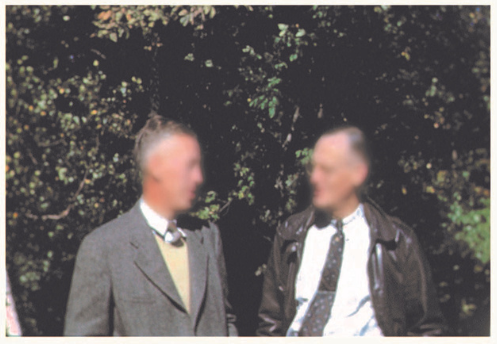Alcoholics Anonymous can be found in approximately 180 nations worldwide. In the United States, A.A. consists of an estimated 61,900 groups and nearly 1.3 million members (as of January 2018).
Every member of Alcoholics Anonymous first learned about A.A. somehow. Perhaps a seed of sobriety was planted when they heard a public service announcement on the radio, read an A.A. pamphlet at a bus station, listened to their doctor ask about their drinking, or when a family member begged them to check out A.A.
Many alcoholics first hear A.A.’s message of hope thanks to the various service committees where countless volunteers reach out to people who need it. Nationally, service committees span eight different focus areas. They are:
- Accessibilities Committees: Assist those with significant barriers that must be overcome to ensure full participation in A.A.
- Archives Committees: Collect, preserve, and share the history of A.A.
- Cooperation with the Professional Community (C.P.C) Committees: Inform professionals who are likely to come into contact with problem drinkers about A.A.
- Corrections Committees: Carry the A.A. message of recovery to incarcerated alcoholics.
- Literature Committees: Ensure that the importance of A.A. literature is understood and available to A.A. groups and events, service meetings, and the general public.
- Public Information Committees: Convey A.A. information to the general public.
- Treatment Committees: Carry the A.A. message into treatment settings where there may be suffering alcoholics.
- Remote Communities Committees: Work to bring A.A. to communities difficult to reach because of geography, language, or culture.
These may be represented slightly differently in your area, or through combined committees.
What does this mean for the State of Maine?
There are over 750 Alcoholics Anonymous meetings across the state weekly, with twenty-three active districts, and numerous committees. The committees serve to make sure A.A.’s message of recovery is available within our state, so alcoholics and their families know that a fun and peaceful sober way of life exists.
Journey Magazine recently received an update from District 1, which serves the Greater Portland, Maine area.
These grateful A.A. members carry the message of recovery behind the walls of the Cumberland County Jail and Windham Prison through the work of the Corrections Committee and offer welcoming “A.A. contacts” to patients at the Milestone detox and local hospitals through the Treatment Committee.
They also aim to inform alcoholics, the public, and professionals like doctors and lawyers who often cross paths with alcoholics about the life-saving fellowship. This service work is done through a combined committee (of both P.I.C & C.P.C referenced above) called the PICPC Committee: Public Information and Cooperation with the Professional Community.
In line with the tradition that “A.A. shall forever remain non-professional,” the work of the PICPC committee relies on the voluntary time of A.A. members who want to give back what they have freely received. While the years-long pandemic interrupted this committee’s work, in the past months the PICPC Committee has roared back into action.
Here are the main things they’re working on now:
Literature Racks: filled with A.A. pamphlets and meeting lists have been placed at dozens of locations around Greater Portland, including libraries, town halls, the USM campus, and hospitals.
AA Presentations: In light of the fellowship’s experience that the best “advertisement” for Alcoholics Anonymous is through the words of sober A.A. members, they’ve embarked on a series of AA presentations to healthcare students and professionals. They recently met with a roomful of University of Southern Maine nursing students, and it was truly heartening to see the rapt interest with which they were asked questions on sponsorship, types of AA meetings, and how best to encourage alcoholics to enter the halls.
Media PSA: If you live within the broadcast range of WMPG (90.9 FM), USM’s college radio station, you may already have heard a 30-second media PSA of stories by young people who have been helped to sobriety through A.A. These public service announcements covering every age group and demographic, plus a wide array of other informational materials, are made available through A.A.’s General Service Office in New York City.
Healthcare Packet: The average doctor or dentist in the US gets only a day or two of education on addiction in their twelve or so years of education and residency. In response, A.A.’s General Service Office offers a healthcare packet for A.A. members to pass along to their health providers. Since active alcoholics often end up in desperate straits in the medical system, educating providers on the recovery program of AA can be a lifesaver for fellow alcoholics. These packets are available at the A.A. Central Service Office in Portland.
For more information or to get involved with the numerous meetings, committees, and districts within the State of Maine visit CSOAAMaine.org.
For information on national events, committees, recovery resources, and daily reflections visit aa.org.





